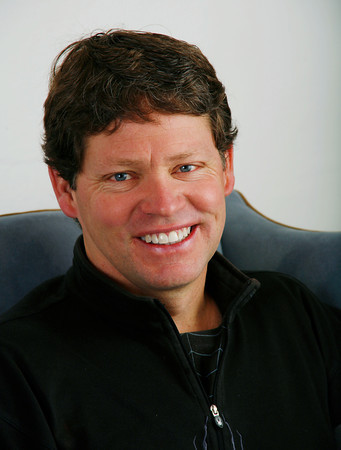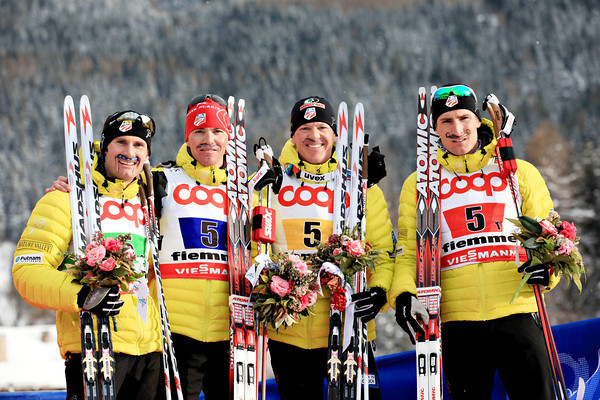When Bill Marolt took over 17 years ago as president and chief executive officer of what is now called the U.S. Ski and Snowboard Assn., he proclaimed its goal was to be the "best in the world." For sure, the United States had produced great skiers: Andrea Mead-Lawrence, Billy Kidd, the Mahre brothers, generations of the Cochran family, Bill Johnson, Tommy Moe, Picabo Street, the cross-country racer Billy Koch. Absolutely, unequivocally, the American union was blessed with mountains east and west, even north in Alaska.
When Marolt took over, however, his goal was audacious. The U.S. Ski Team had enjoyed limited international success for about a decade. Its cash situation was, to be gentle, precarious. "Best in the world"? Little wonder the Europeans -- who dominated the winter scene -- might have laughed. Heartily.
With Wednesday's announcement that Tiger Shaw is due to take over for Marolt after next February's Sochi Games, the time is now to give credit where credit is due.
The United States is now a Winter Games powerhouse. Why? Because of the U.S. Ski Team.
At the Vancouver 2010 Games, the U.S. team won the medals count, with 37. Again -- why? Because the U.S. Ski team won 21.
A little comparison, for those who might yet be stuck in the past, or can't -- or don't want to -- get past their feather boas:
It is absolutely true that in Vancouver Evan Lysacek won gold in men's figure skating. But in the ladies' individual skating competition, no American won a medal of any color. That marked the first time there was no medal in women's singles since 1964, underscoring -- despite the massive hype and drama television loves to play up -- the weakness in the U.S. skating program.
That has not changed. At the 2013 worlds, U.S. women managed to finish fifth and sixth.
Reality, geography, politics and power check:
The 2014 Games are, of course, in Russia, where Vladimir Putin is president. The costs for those Games are already north of $50 billion. Mr. Putin did not oversee the spending of that much money not to win important medals. In Russia, figure skating is important (recall the judging controversy at the 2002 Games). Outside of South Korea's Yuna Kim, who is ethereal, who thinks the Russians aren't going to run away with the figure-skating medals?
The corollary? That leaves the real action in Sochi in the mountains.
Which leads back to the U.S. Ski Team, which has been planning for Sochi since even before Vancouver.
For instance, in 2014 because of new events added in 2011 by the International Olympic Committee, there will be 48 medal opportunities in snowboarding and freeskiing, up from 24 in 2010.
In these so-called "action sport" events, U.S. athletes have been at or near the top of the world rankings over the past seasons.
Meanwhile, in alpine skiing, Ted Ligety won three golds at last year's world championships. And Bode Miller is only the greatest all-around male skier the United States has ever produced.
The U.S. women, to echo the slogan, are the world's best: Mikaela Shiffrin, just 18, is the No. 1 slalom skier anywhere, Julia Mancuso one of the top big-event racers ever. Lindsey Vonn, the most successful female ski racer in American history, a four-time World Cup overall champion and the 2010 Vancouver downhill gold medalist, now has something to prove; she is making an ahead-of-schedule recovery from last February's knee injury, cleared for on-snow training and heading Friday for Chile, the ski team's other big announcement Wednesday. Vonn's original target to be back on skis: November.
In cross-country, Kikkan Randall and Jesse Diggins and, for that matter, the entire women's relay team are for-real contenders to win the first Olympic medals for the U.S. in the discipline since Koch in the 1970s. On the men's side, Andy Newell is in the hunt, too.
The Nordic combined team proved the breakout stars of the Vancouver Games. Billy Demong and Todd Lodwick figure to be back. And the Fletcher brothers, Taylor and Bryan, are killer fast on skis. Any sort of jumping and the skiing will take care of itself -- which the rest of the world knows full well.
Sarah Hendrickson won last year's women's ski jumping world championships -- though she suffered an injury to her right knee in a training jump last week in Europe.
Back to snowboarding: the U.S. roster is so good and so deep that Shaun White, the two-time halfpipe gold medalist, is going to have to compete, and hard, to defend his title.
These are just some of the faces and names that will be on TV come February.
As complicated as Bill Marolt's job is, it's also thoroughly elemental. It's USSA's job to put these athletes in position come next February to deliver peak performance.
The record shows that few, if any, sports organizations have been run as well as the U.S. Ski Team since 1996.
Indeed, few organizations anywhere are now run with the vision -- and the winning culture -- of the ski team.
Since 2009, USSA has been headquartered at the Center of Excellence in Park City, Utah, where staff, trainers, coaches and athletes across all the disciplines mingle in a building that is part office and part state-of-the-art training center -- the better to exchange stories, ideas, laughs, whatever. This is how a common culture is not only built but nurtured.
This fall will mark the third season of the Copper Mountain Speed Center in Colorado -- where racers can, early-season, train full-on downhill, with speeds of 80 mph and jumps of 50 to 70 meters.
For 16 of the last 17 years, USSA has recorded a balanced budget.
It has an endowment that now measures $60 million.
All of this is, in large measure, thanks to the leadership of Bill Marolt.
"I think if I've done one thing," Marolt said, "I brought focus and a sense of direction that ultimately everybody bought into. And out of that focus and direction, you can create that culture of excellence. Then -- you can create a lot.
"More than anything, I brought the sense of focus."
That is what Shaw inherits. This is his challenge and his opportunity.
An alpine skier himself who raced in the 1984 Sarajevo -- under then-men's coach Bill Marolt -- and 1988 Calgary Games, where he finished 12th in the giant slalom and 18th in the super-G, Shaw has since gone on to make himself into a successful businessman.
Shaw recently served as a senior director at Global Rescue LLC, responsible for business development and new markets. Before that he was director of inventory strategy at Dealertrack, overseeing a wide range of automotive retail sales issues.
Marolt will turn 70 in September. Shaw turned 52 last Saturday.
It's one more mark of Marolt's professionalism that there was a process to recruit, identity and put in place his successor. Shaw will become chief operating officer Oct. 1, then move into the top job next spring.
"I'm going to be involved right away in whatever Bill wants as he tutors me," Shaw said in a telephone interview, adding about Sochi and referring again to Marolt, "It's his show. The Olympics are his show. He built the institution to get the athletes to the podium, all that infrastructure.
"What I hope I learn in the time I spend under him is what has made him so successful. The primary goal of mine is to keep us No. 1 in the world, whatever it takes. What he is doing works. We want to emulate that, replicate that and -- improve on it."



